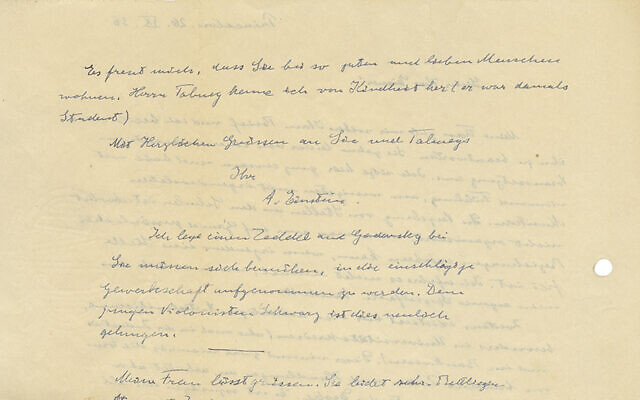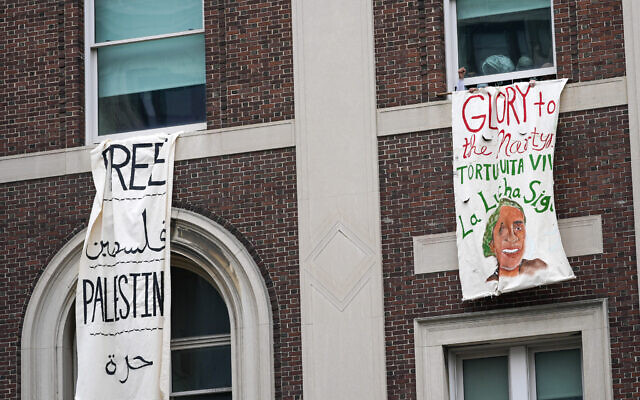Handwritten Einstein letter up for auction describes ‘tremendous’ US antisemitism
Rare missive, sent to a friend in 1936, warns that prejudice in academia ‘simmers’ intensely below the surface; complains academic positions handed out through personal connections
Stuart Winer is a breaking news editor at The Times of Israel.

A letter handwritten by iconic physicist Albert Einstein to a friend, in which he warned of the antisemitism he said was prevalent in US academia, is to go up for sale, the Kedem Auction House announced Sunday.
Einstein wrote the letter to his friend Austrian Jewish pianist Bruno Eisner in 1936, when the latter was considering a position in US academia. Eisner was, at the time, staying in New York with a mutual friend.
“A tremendous degree of antisemitism exists here, especially in academia (though also in industry and banking),” Einstein wrote according to an English translation of the letter provided in a statement from the auction house.
“Mind you, it never takes the form of brutal speech or action, but simmers all the more intensely under the surface,” Einstein wrote. “It is, so to speak, an omnipresent enemy, one that is impossible to see, and whose presence you only perceive.”
Einstein noted that his own assistant was forced to leave the country and take a position in Russia due to the antisemitism he had faced in the US.
Einstein also described how obtaining employment in academia was very much based on who you know.
“The assignment of positions is completely disorganized, so you find out about vacancies at any given location only through personal connections,” he wrote.

The letter will be sold later this week with a suggested price of NIS 40,000 ($21,900).
It also includes regards to Eisner from Einstein’s wife Elsa, who was seriously ill at the time.
“She suffers greatly, bedridden, trouble breathing, diabetes,” Einstein wrote describing his wife’s discomfort. Three months later Elsa Einstein passed away.
Despite Einstein’s grim depiction, Eisner was able to build a career as a concert pianist and professor of music, teaching at universities and music academies across the US. He died in New York in 1978, aged 94.
After rising to power in 1933 the Nazis passed laws preventing Jews from holding positions of public office, including in universities.
German-born Einstein, who won the Nobel Prize in 1921 for his discovery of the photoelectric effect, was on a lecture tour abroad when Adolf Hitler rose to power.
Rather than return home, he chose to settle in the US where he was offered a position at the Institute for Advanced Study in Princeton, New Jersey. He died in 1955.









